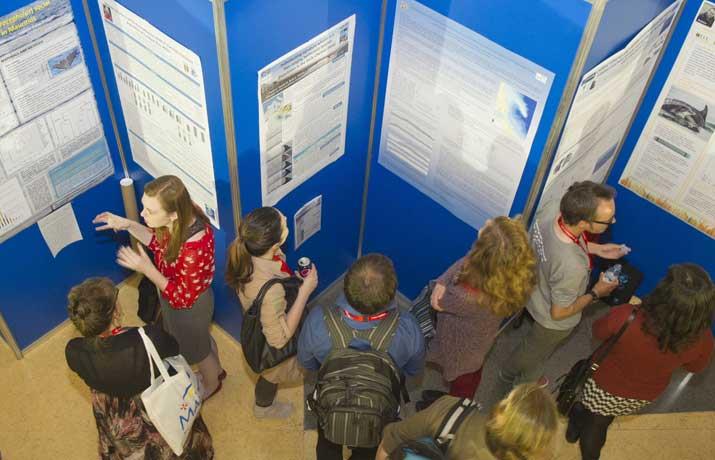Over 350 delegates from over 40 countries - from Europe, USA, Russia, Australia, Africa, have gathered for an international effort to upgrade marine mammal conservation through science and education. This is an urgent need especially in the Mediterranean's relatively closed sea which shows its marine mammals are suffering from heavy chemical pollution, noise and vessel traffic disturbance.
The Ministry for Education and Employment, the Ministry for Transport and Infrastructure, the Ministry for the Economy, Investment and Small Business, the Ministry of Finance and the Ministry for Sustainable Development, the Environment and Climate change, and the Malta Tourism Authority all provided financial support for this unique event together with international entities such as RAC/SPA, ASCOBANS and ACCOBAMS responsible for promoting marine conservation and science in different parts of the world.

The Minister for Transport and Infrastructure, Hon. Joe Mizzi gave a valid and relevant opening address at the European Cetacean Society Conference held recently in Malta for the first time.
This speech was followed by addresses from Dr. Thierry Jauniaux, the Chair of the European Cetacean Society; Dr Adriana Vella for the Conservation Biology Research Group, University of Malta, BICREF NGO and Chair of the Scientific Committee of this international conference. The EU Commissioner for the Environment, Maritime Affairs and Fisheries, Karmenu Vella concluded the opening speeches. These presentations stressed the need for scientific research, especially conservation research, to guide the implementation and monitoring strategies urgently required to improve maritime advancements that decrease impacts on seas and oceans.
This conference organized by BICREF and the Conservation Biology Research Group of the University of Malta was the 29th European Cetacean Conference and focused on various aspects of marine science relevant to dolphin, whale and other marine mammal conservation. It incorporated over 200 oral, poster and video presentations on the science and policy that may be able to guide nations toward necessary conservation actions in the near future. The theme of this conference focused on how conservation efforts are being managed at a range of levels and the links between them. This included consideration of local, national, regional to global conservation initiatives, as well as methods and mechanisms for addressing both short and long-term impacts. Original research contributions on marine mammal health, genetics, by-catch, acoustics, abundance, distribution, ecology, breeding, behaviour, conservation, welfare, historical perspectives, conservation policy were presented.
The Conference was of relevance to conservation research and management, as well as to the effective implementation of the Marine Strategy Framework Directive, Integrated Fisheries, Blue Growth, Education, Tourism and Maritime policies, the Natura 2000, the Habitats Directive, the Agreements for the Conservation of Cetaceans and the Conventions on Migratory Species and Biodiversity.
Most of the conference delegates visiting Malta for the first time due to this conference found the latter to be very interesting and very well organized. There was the opportunity to participate in any of the ten workshops preceding the conference, followed by 3 day plenary presentations, poster sessions and a research video night during the conference itself.

Careers in marine conservation and maritime developments promoted at Special Marine Science Seminar for Youths
A very successful marine science conference also offered local youths a special seminar to promote careers related to marine conservation and maritime affairs.
Education and Employment Minister Evarist Bartolo opened the Marine Science Seminar for Youths held in Malta for the first time on the 26th of March. Youths from the University of Malta, MCAST, Sixth forms and beyond participated in this event and were exposed to international expertise in the field of marine science and conservation linked to the various maritime activities worldwide. The event was organized by The Biological Conservation Research Foundation (BICREF) in collaboration with the Conservation Biology Research Group of the University of Malta, and was sponsored by the Ministry for Education and Employment.
Youths were given the opportunity to see how research relates to better management of our natural resources and heritage directly and feasibly by improving the way organization and development is undertaken. It also showed how more and more skilled scientists will be required to cover all the increasing technical demands in the marine and maritime sectors. The Marine Strategy Framework Directive, the Convention for Biological Diversity have placed 2020 as the target by which countries, including Malta, will need to be able to reach and to prove Good Environmental Status, while also evidencing the protection of marine biodiversity.
The Maltese Islands, right in the middle of a very busy and impacted Mediterranean Sea, should be at the centre of such integrated training and expertise. So local youths have the advantage of being able to be involved in such training and expert research programmes related to marine conservation in Malta and Europe. The Conservation Biology Research Group at the University of Malta also has overseas students who hail from USA and Greece to undertake post-graduate research at the University. Malta enjoys a good reputation for conservation research, which needs to be encouraged for future generations.
Keynote speakers at this Marine Science and Conservation Seminar included Prof. Philip Hammond, Prof. Gianni Pavan, Dr. Barbara Taylor and Dr. Jay Barlow. Dr. Adriana Vella chaired this event and also gave a short contribution prior to presenting the educational award winning documentary Waves of Life produced by the ngo BICREF.
For further information visit: www.bicref.org or contact Dr. Adriana Vella Ph.D, Conservation Biology Research Group, Department of Biology, Faculty of Science, University of Malta at [email protected]